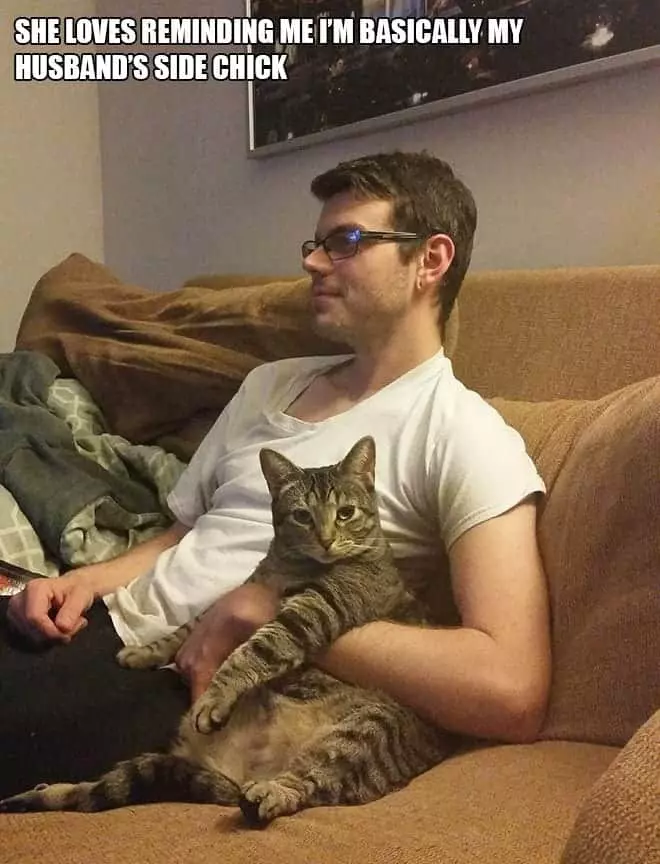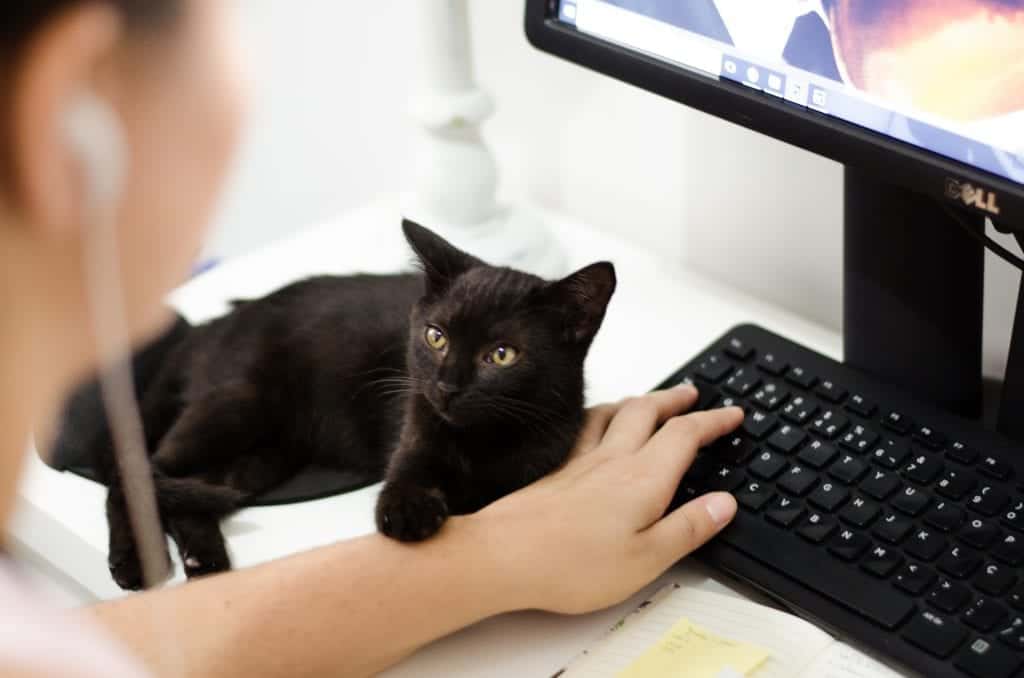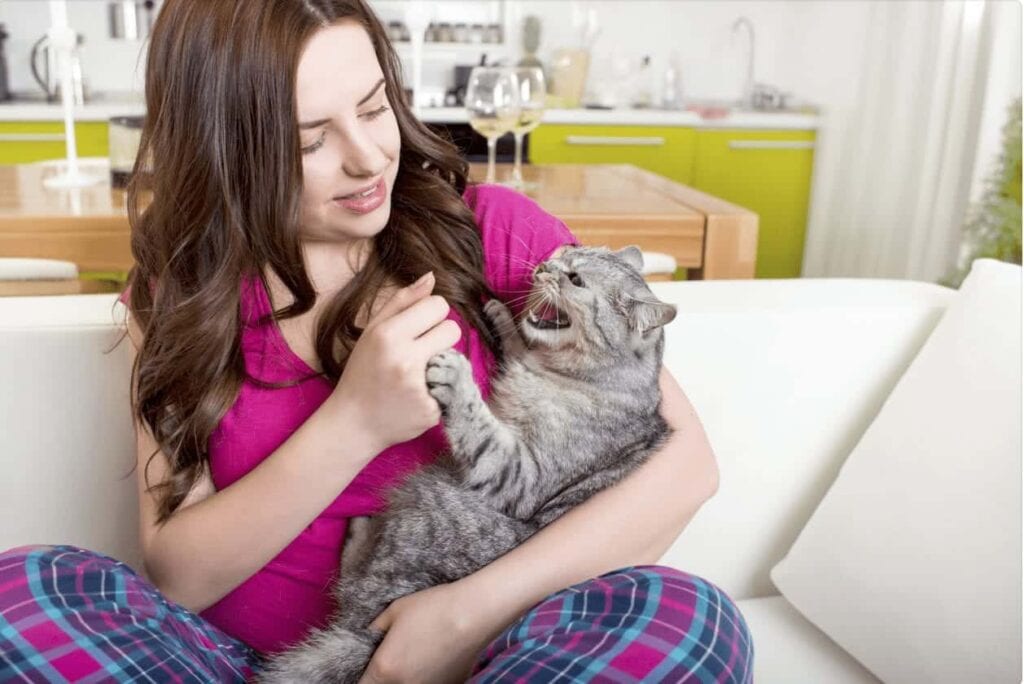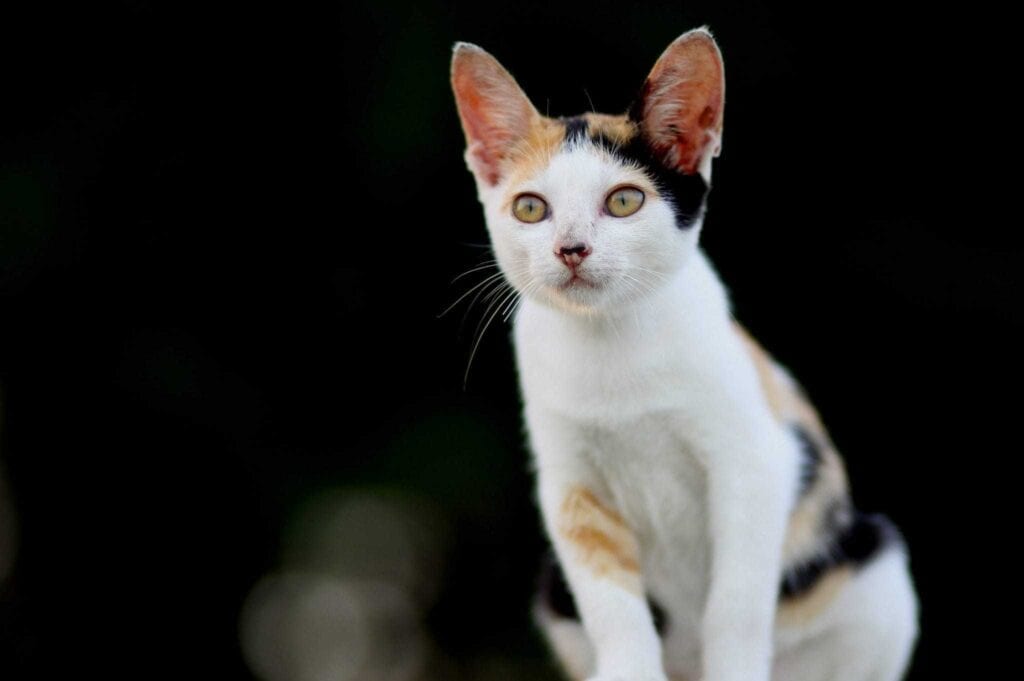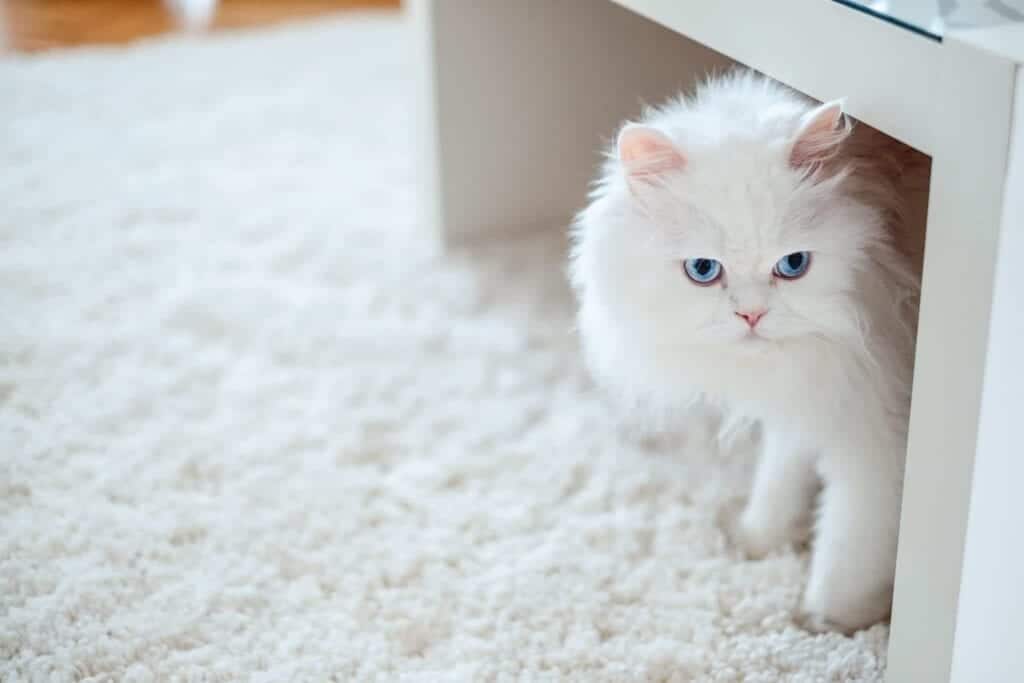There are many emotions that cats can feel, and jealousy is certainly one of them. We know that cats are territorial beings, but how is it that cats display this behavior with humans and other cats? Here we will break down for you why cats get jealous, and how to curb their jealousy should it be a problem for your kitty.
First, a little cat meme…you know this cat knows exactly what they are doing! Cats can even make you jealous, too, sometimes!
Why do cats become jealous?
Similar to us, cats can quickly show their jealousy should they feel as if they are being shunned from a situation or an environment. For example, think about when you close the door on your feline friend. She might quickly grow insane with jealousy and yowl, paw under the door, etc.
For your cat, they are a micromanager by nature. It’s in their DNA to want to know what is going on, when it’s going on at all times. If they feel shut out, they might be quick to express themselves by way of aggression or fear.
Additionally, cats can quickly show jealousy should you start paying attention to something or someone else more than them. People often wonder: why does my cat sit on my computer keyboard? Well, the answer to that is simple! They’re jealous! This desperate “pay attention to me!” cry for help should be a clear indication to you as their owner that they want your attention, and they want it right meow.
In terms of the “someone” that they grow jealous of, this could be a great number of scenarios. A new baby, a new pet, a new visitor in the home. The list goes on and on. Your cat might show their jealousy to this new presence in your home by demanding your undivided attention, or worse, lashing out on them.
Interesting fact on cat jealousy: If your cat was poorly socialized as a kitten, this could lead to a cat that easily becomes codependent on you and displays signs of jealousy often.
If you’ve brought a new member into your home, do your part to reassure your existing cat that has grown jealous that you still value them and love them dearly. Your cat needs reassurance, despite the fact that they might give you the cold shoulder from time to time. Deep down, we all need love. And that includes your cat, too! Don’t let that tough exterior fool you, and find ways to remind them just how special they are to you to keep their growing jealousy at bay.
How do cats show jealousy?
There are several signs of jealousy in cats. Some of the most common signs of feline jealousy include:
- Swatting
- Hissing
- Growling
- Biting
- Unprovoked attacks, particularly to the person or thing that triggers their newfound jealousy
- Hiding
- Going outside of the litter box
- New destructive behavior, such as shredding curtains, ripping furniture, etc.
While harmless and much less destructive, cats that become jealous can also show this by way of fawning. This is their way of demanding your attention, and they do this through excessive meows, purring, rubbing on you, etc. This is not your casual “pet me, I’m cute” attempt for affection, this is very demanding and persistent.
How to help your cat with their jealousy…
If you’ve defined your cat’s jealousy, the best thing that you can do as their owner is to alleviate them of it. Your cat doesn’t become jealous for no reason, so do your best to pinpoint the issue so that you can have your happy cat back once again. If a change to their environment, such as a move or welcoming of a new family member, has triggered their jealousy, this is something permanent and you must make a conscious effort to help them during their period of adjustment.
Offer your troubled kitty a space which is their own and take introductions slowly. Cats are not fans of change and should they incur it, they prefer things that are on their terms. Do not press the situation as this will only prove to make things worse. Instead, make the environment in which your cat is living a positive environment that they will enjoy.
Offer them mental stimulation, enrichment toys, play, and lots of love to your confused kitty. Your cat is simply insecure and they need you to bring them back to center and remind them that they are wanted, loved, and appreciated. Be sure that they have a space which is theirs and theirs alone where they can decompress and feel at ease. And remember, above all, patience is key.


